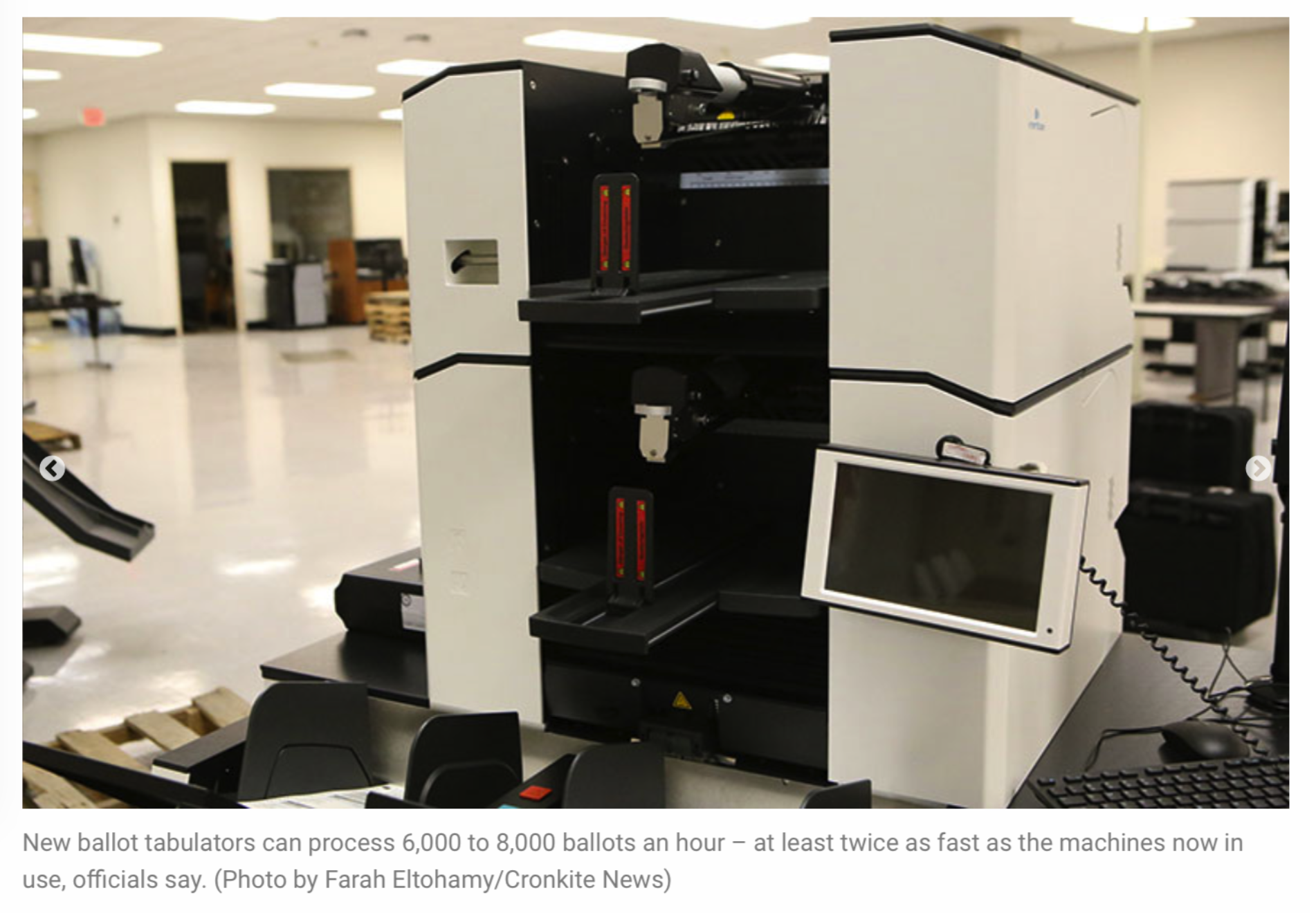By Howard Fischer | Capitol Media Services
A lawyer for the state’s largest county is telling a federal judge that a lawsuit by two Republican candidates seeking to require a hand count of the 2022 election is legally and factually flawed.
In a 21-page filing, Emily Craiger said claims by Kari Lake and Mark Finchem that counting machines are unreliable because they subject to fraud and hacking are based on allegations about elections from states like Georgia, Wisconsin and Colorado “but not Arizona or Maricopa County.”
She told Judge John Tuchi that allegations that machines are vulnerable because of “foreign manufacturing of components by hostile nations” are so generic as to not even merit his consideration.
Craiger also pointed out that Arizona law requires various checks of counting equipment both before and after each election. And there’s even a random hand count of selected races of at least 2% of the precincts to compare the tally made by volunteers from both major parties with what the machine recorded.
What’s more, she told Tuchi a hand count of all ballots – nearly 2.1 million in Maricopa County alone – would be impossible, pointing out that it took the firm hired by the Senate to audit the 2020 election more than three months. And that count was only of the presidential and U.S. Senate races.
“But ballots in Maricopa County seldom have fewer than 10 races in a primary,” Craiger said. “A general election, which includes judicial retention races, can have 60 to 70 races to count.”
And there’s something else.
Craiger pointed out that Lake, a contender for governor, and Finchem, currently a state representative campaigning for secretary of state, are contending there are harms from machine counting of ballots dating back to 2002. And they acknowledged in their complaint they were aware that Secretary of State Katie Hobbs in 2019 certified the specific Dominion Voting System used in Maricopa County that they now contend is unreliable.
“Yet plaintiffs waited until April 22, 2022 – when both were running for statewide office – to file suit,” Craiger told the judge, beyond the two-year statute of limitations. “Apparently, raising these concerns was not politically expedient during the limitations period.”
In a separate filing, an attorney for Hobbs added her own reasons to why Tuchi should toss the complaint by the two would-be state officials.
“They allege no facts sufficient to give rise to an inference that their right to vote has been or will be violated,” wrote Roopali Desai. She told the judge the complaint “contains only sheer conjecture about possible hacking of electronic voting equipment and irrelevant allegations about other jurisdictions.”
The filings come as Lake and Finchem on June 8 renewed their request for a preliminary injunction prohibiting the use of any electronic voting systems to count ballots in any future Arizona election.





